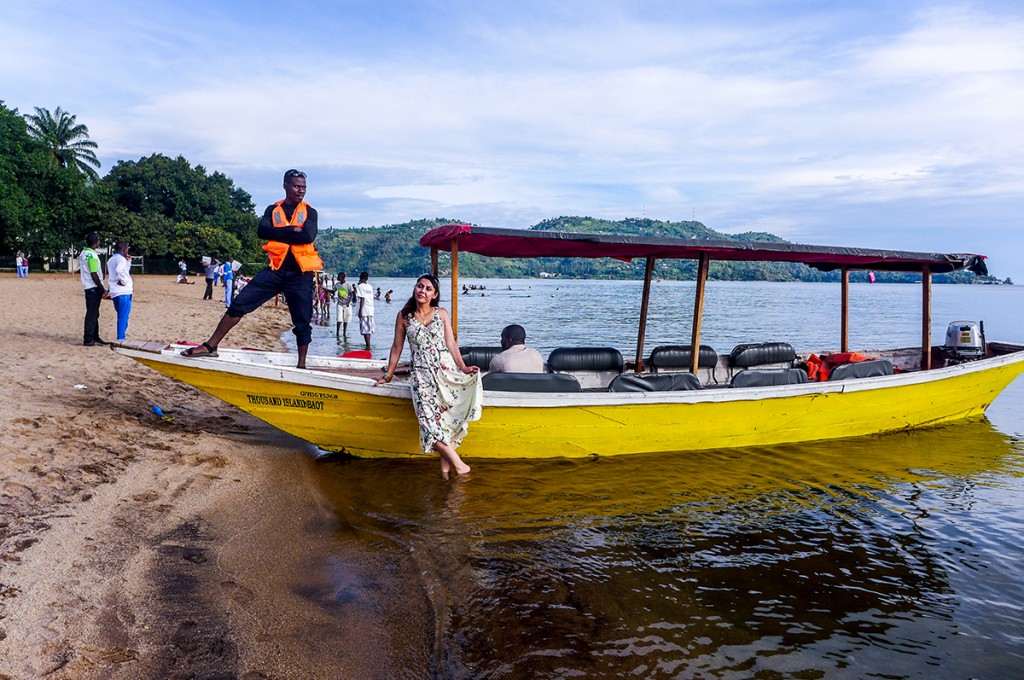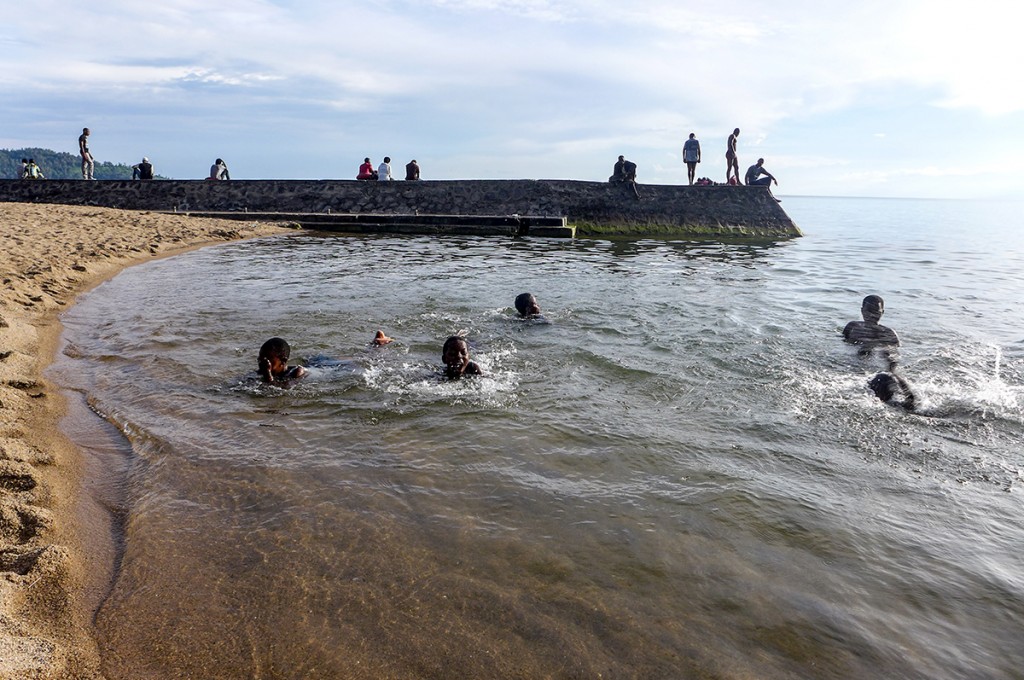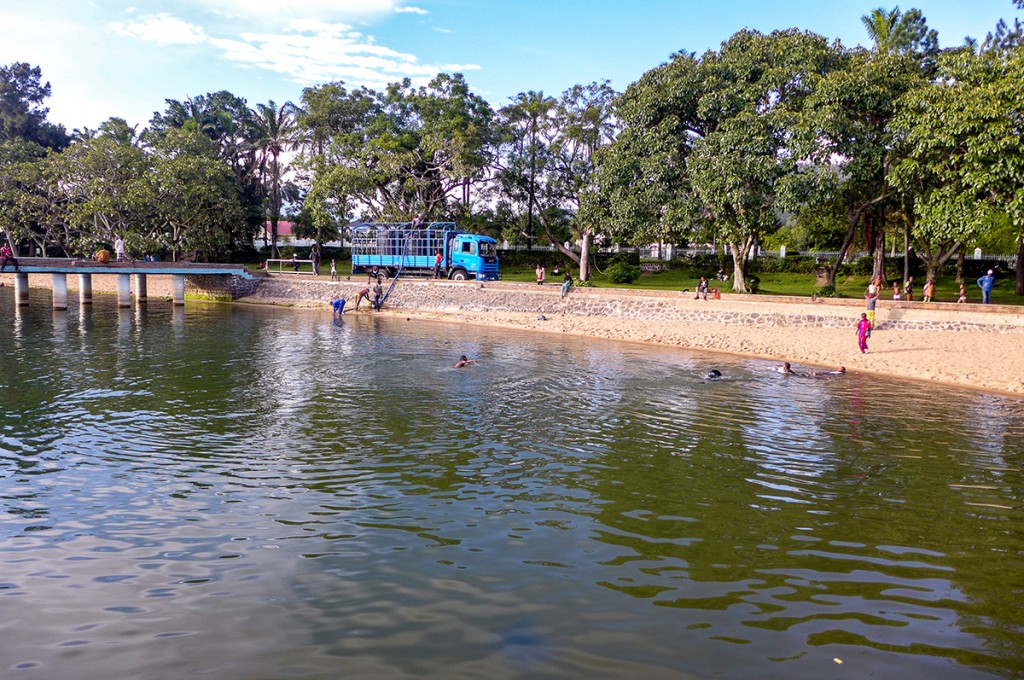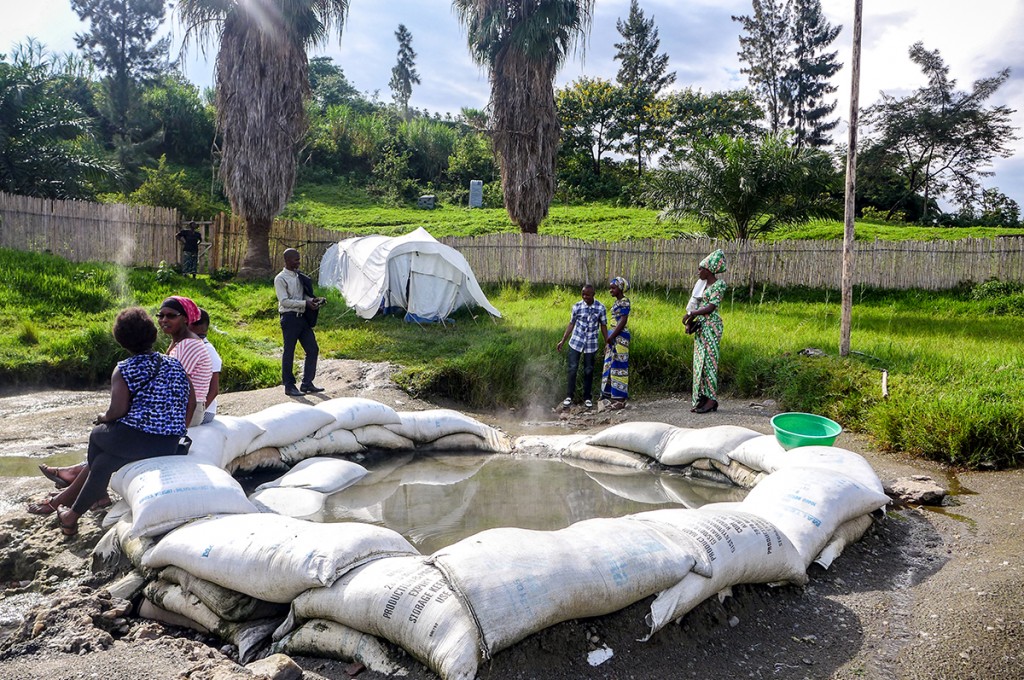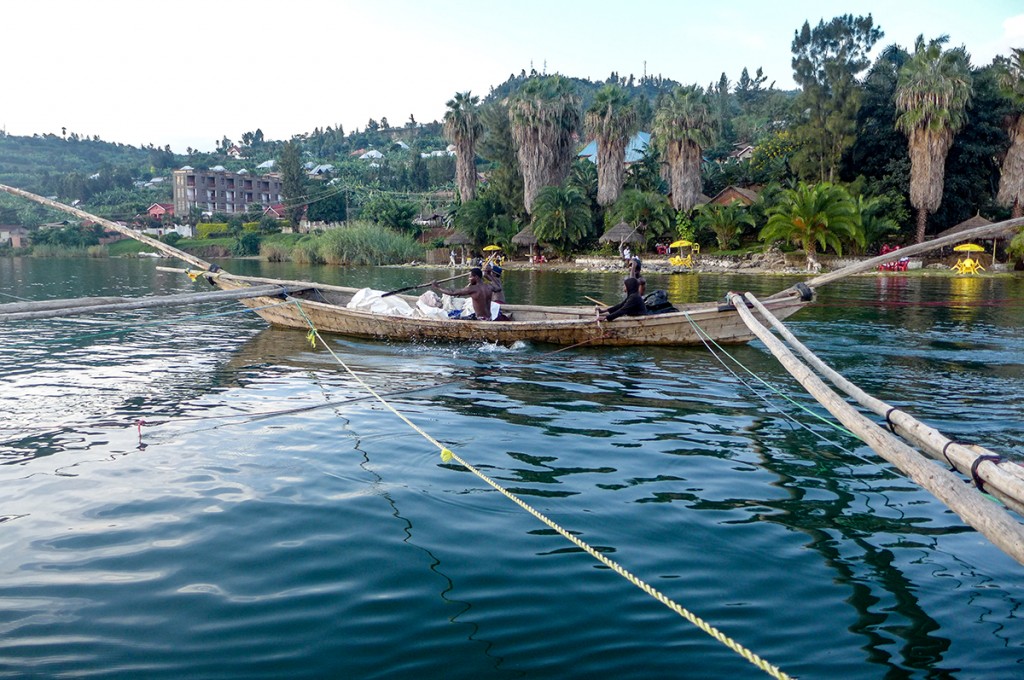
Janviere Uwimana, GPJ Rwanda
Lake Kivu, one of the deepest lakes in the world, lies on the border between Rwanda and Democratic Republic of Congo.
GISENYI, RWANDA — It’s a quiet Saturday on the shores of Lake Kivu in Gisenyi, a town in Rubavu district in Rwanda’s Western Province. Water from the lake laps at the shore. Birds chirp from tree branches above. There’s a gentle breeze. People walk, cheerful, along an asphalt road bordered with flowers and palm trees.
Weekends are a chance to escape the stress of daily life, and many people find this escape on the beach. Here, at Lake Kivu, a public beach, people of all ages, races and social and economic backgrounds meet at the water’s edge to swim, play sports or simply relax. Some walk barefoot in the sand. Others sit by the side of the lake, swinging their feet in the water while enjoying the sun’s soft rays on their skin.



Aline Kacunga, 23, of Goma, Democratic Republic of Congo, says she crossed the border to relax on the beach with her friends.
“I love swimming; it’s my favorite hobby,” Kacunga says. “I love diving from this bridge. I am sure I cannot hit my head against rocks during a dive, because the lake has a sandy bottom.”
Lake Kivu is on the border of Rwanda and Democratic Republic of Congo. It’s a freshwater lake — free of crocodiles and sharks — and boasts a number of islands, including one of the largest inland islands on the African continent, ldjwi.
The small town of Gisenyi is a 25-minute drive from the city of Goma. The town is an idyllic place to escape from city life, because it has hotels, bars and restaurants nestled on the edge of Lake Kivu.
Lake Kivu Serena Hotel, Palm Garden, Inzozi Beach Hotel, Paradise Malahide Hotel and New Tam-Tam Bikini Bar & Restaurant, for example, provide access to private beaches and arrange activities like fishing, canoeing, kayaking and boat rides for their guests.
“I’m a Tanzanian,” says Jessica Imani, 24, a tourist in Gisenyi. “My friends and I are staying here for a week. We appreciate the great hospitality here and enjoy a free gift of fresh air. It’s our lovely place to relish food and drinks, and we love savoring the local specialty food known as sambaza.” Sambaza is a small fish, often compared with sardines.
One of the most popular tours is a trip by canoe or boat to the many islands on Lake Kivu. A tourist can hire a locally made canoe for 1,000 Rwandan francs ($1.20) or a group tour for 700 Rwandan francs (84 cents).
Thermal hot springs, locally known as Amashyuza, are on the eastern shore of Lake Kivu. For Gisenyi residents, the springs harbor not only mysteries but also miracles. The hot waters come from deep inside Earth’s core and in certain areas reach temperatures of 72 degrees Celsius (160 degrees Fahrenheit).
In the cooler parts of the springs, where visitors are permitted to soak, the water functions as a natural remedy for health problems, including the flu and rheumatic diseases, while boosting the immune system.
For many Gisenyi residents, the appeal of Lake Kivu is also an opportunity to make a living in the tourism industry.
A variety of services are available in Gisenyi and throughout other parts of the lake. Massages, for example, are a highlight at Amashyuza.
Thacien Habimana, a 28-year-old massage therapist at the hot springs, says he was born in a village near Lake Kivu and used to fish and canoe often.
“I had no chance to go to school, and living near Lake Kivu was a godsend to me because I had no choice but to depend on this lake for my means of livelihood,” Habimna says.
For a full-body massage, visitors pay 500 Rwandan francs (60 cents); the price for a hand and leg massage is 200 Rwandan francs (20 cents).
“I suffered from muscle swelling and soreness,” says Devotha Kampogo, a 53-year-old woman who uses the waters to treat rheumatism. “But since I’ve started enjoying a massage in hot thermal spring waters, I’d say my condition has improved dramatically.”



Visit Gisenyi and Lake Kivu
The closest airport to Gisenyi is Goma International Airport in Democratic Republic of Congo. It is a little more than a 10-minute drive from the airport to town and requires crossing the border into Rwanda. For additional information, call +250 252 57 65 14 or email [email protected].
Ndayaho Sylvestre, GPJ, translated the article from French.

